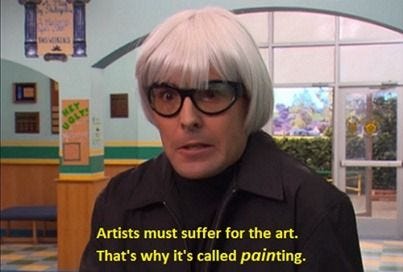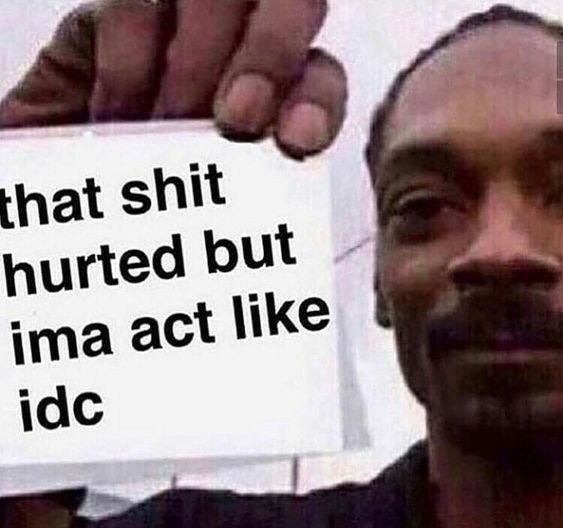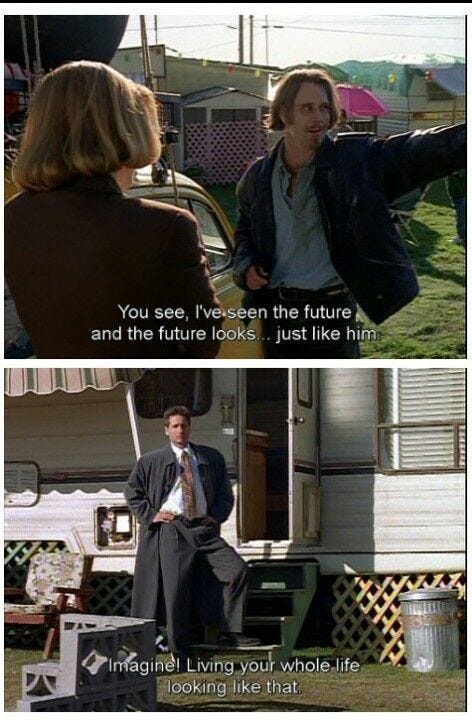A couple of weeks ago, I posted a poll on IG asking people what subjects they wanted me to cover in upcoming newsletters. Starting new projects won last time, but in 2nd place was processing feedback, so here we are to tackle that this week!
There’s no way around it: sometimes, feedback can suck and sometimes it hurts your feelings and bites at your insecurities in the most frustrating of ways.
Another unfortunate truth: Feedback does make you better if you’re getting good feedback.
Good feedback does not necessarily mean that every note is glowing praise with nothing to criticize. Bad feedback does not mean they found something that needs improving in your book. For the sake of this newsletter, let’s roll with “helpful” feedback.
I started writing books when I was fourteen and I was one of the only people in my friend group who wrote for fun, but a lot of them were eager to read my books. Those friends were not offering bold critiques to help me improve because they were just having fun, and so was I. I also posted a lot of my books on a site called InkPop (throwback!!) and would swap reviews with other young writers.
On that site, likes and comments would be accrued and you’d get a ranking, then the most popular books would get reviewed by actual publishers. And my god, people were MEAN. I’d get comments on how unlikable and stupid my characters were, how I was low-key illiterate because I had typos and therefore my writing was unreadable. Did those mean comments help and make me better? No. Not one bit.
Me, in my InkPop comments circa 2009
It wasn’t until I went to college that I really gained a good sense of feedback and critique. I got helpful feedback on scripts and pieces I wrote and I also watched a LOT of film bros not accept feedback. A personal fave was “It doesn’t matter if it doesn’t make sense. I am going to direct it. Only I need to get it”! In a lot of my college writing classes, you were not allowed to speak while your pieces were being critiqued and had to sit there and take notes. You had to sit there and take it.
There were times that were so anxiety-inducing as you listened to your peers totally misunderstand what you were trying to say or come way out of left field. However, it’s still a practice I try to uphold as much as I can in my weekly critique group to this day. Granted, these are my friends who know my strengths and weaknesses better than anyone else so there is far more banter, but I am a firm believer that I should intake the feedback before I push back. If I don’t choose to use it, I don’t choose to use it. That’s for me and my story to decide later.
Writing is such a personal profession to pursue and the hard reality is that nothing you write will ever pass with a full 100% approval rating. People have preferences and opinions and there will always be someone who does not like what you’ve written, and that’s okay! When it comes to sharing your writing with others, even at the beta reader stage, it’s important to keep in mind that in probably 99% of cases, the person reading really DOES want to help you and be of use to you. There is always a chance of getting people who are aiming to punch down or toot their own horn during a swap, but those are hopefully few and far between.
If Nolan North says it, it must be true, correct?
Finding people who you trust with your words is critical. It might take some time to hone what that circle looks like and find the people who a) love and support what you do, and b) are willing to tell you what you need to hear so that you succeed. Betas offering feedback is not usually meant to point out how you failed. It’s trying to push you further in the right direction. Comments like “the tension breaks here, keep it going strong instead” or “I didn’t necessarily buy why they did that, dig deeper” are so helpful to me because they tell me I am almost there. Helpful feedback on structure can literally make or break a book. When you’re writing, you might feel something is not quite right, or you put it down on the page knowing all the details, but a reader doesn’t. Someone pointing out that something is off might be that key to your entire story falling into place and the amount of relief that comes with that is so immense.
I also think that a certain amount of work needs to happen internally before you start getting honest feedback. You need to understand that someone returning to you with nothing but praise and no constructive feedback does not help you improve your craft, unless you’ve asked for a positivity pass, which is very different. It’s highly unlikely that you as the writer got everything right on the first try and there is absolutely nothing to be ashamed of in that. You need to brace for the fact that your book is not perfect and there is always going to be room for improvement.
Recently, I got confirmation and feedback on my outline for Book 2 from my editor, so now I can actually start vaguely referring to it as Book 2, like the cool kids do. My editor feels really excited about this book and she had some brilliant suggestions, as always. It’s going to involve breaking this book down a lot and doing some huge overhauls, but as daunted as I was at first to go in and smash this little book like legos, I am excited to dive in and view the story from a new perspective… eventually.
Before that, I sent this book off to betas back in January and have received most of my feedback back. I knew that draft wasn’t in the strongest shape ever because I had a lot of mystery/adventure elements that I was still wary about, so I was prepared to hear about a lot of things that weren’t working. Yet, that book received a lot of feedback I was not expecting and honestly, some of it seriously shook my confidence in the book and I haven’t gotten it all back yet.
Here are some of the things I did and told myself to help process that feedback:
Take what resonates and leave what doesn’t — This is definitely an old piece of advice, but it is true. Some people will come at you with suggestions that make no sense for your story, and you are not obligated to take all of them. Actually, you’re not obligated to take any of them, if they just aren’t what’s up. Some feedback is all personal preference, and you are not expected to bend to everyone’s preferences.
Ask for second opinions — I conferred with some of my most trusted betas who’d already read the book, too, and asked them their take on some of this feedback as a cross-reference. I trusted them to help me parse through the notes of truth in there, and decide what was worth deeply considering and what was a misunderstanding of the content.
Think big picture — Instead of diving in and changing all the things people pointed out because someone said so, I looked at all the feedback and focused on what really had my vision in mind. Could I make those changes without compromising the type of book I was trying to write?
Find the serotonin — Sometimes, all you need is a friend to puff you up and remind you what you do well or that you kick ass. This is different from second opinions because instead of asking craft-related questions, a lot of it is just focused on positivity. It’s your friends telling you how great you are and how happy your stories have made them. Sometimes, it’s not always about getting better. Sometimes you just need to feel better on a personal level.
I think getting good at processing feedback and giving it takes time, but the more you are open to learning and growing, the better set you are to improve. I would be so helpless without my trusted betas and critique group. I feel safe enough throwing first drafts and mess at them and trusting that they will know how to prop me up and steer me straight. A safe writing community is one of the most helpful tools a writer can have, so definitely make an effort to find yours. But first, pat yourself on the back because sharing your work is very scary and deserves to be celebrated!
Now, obligatory cryptid meme of the literal funniest thing to ever happen on The X-Files:





